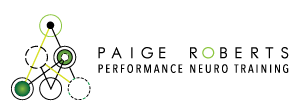“Sports Injury Recovery is 75% Psychological and 25% Physiological”
-Hershman, Nicholas &Thompson
Energy Optimization program combines psychology, physiology, kinesiology, neuroscience and quantum physics to assist you in fully optimizing your nervous system functioning. Once your nervous system is fully optimized you can achieve your full sports performance potential.
- Assist your brain-body in clearing-resolving-healing past mental and physical injuries-traumas-stressors.
- Resolve Performance Anxiety.
- Allow your brain-body to de-condition the mal adaptive neuro pathways your brain-body creates-conditions when you experience sports injuries-trauma-surgeries.
- Perform optimally under pressure consciously and unconsciously when the pressure is on.
- Regain previously achieved level of sports performance.
- Beat body dysmorphia or eating disorders.
- Stop relying on drugs and or alcohol to calm your mind.
- Clear all your “What Ifs” or “Worst Case Scenarios” associated with the perfect execution of a dynamic sports performance.
- Finally obtain your peak performance.
- Re associate past positive sports performance neuro pathways which had been blocked by the sports trauma stopping the maladaptive neuro pathway from being traveled.
- Release from your nervous system secondary trauma of other athlete’s crashes or failures as we lay down neuropathways of protection through seeing your team-mates get injured or them failing.
- Regain your love of competing playing.
- Recalibrate your nervous system to be able relax, sleep well and recover optimally.
- Mentally condition a “zone” or “no mind” eye gaze position to assist you in getting into a positive flow state on command.
Concierge Energy Optimization Program
- WAVI QEEG Perfromance Brain Scan Program Baseline Assessment.
- King Devicks Brain Processing Speed Baseline Assessment.
- 12 Hours of One on One Alpha Flow Sessions.
- Weekly or Intensive Two Day In Person Meetings.
- Inlight Therapy Brain Health 6 Pads-Port Controller System.
- Mind Alive Audio Visual Entrainment, Cranial Electrical Stimulation System.
- 23andMe or Ancestory Genetic Assessment Based Supplement Recommendations.
- WAVI QEEG Perfromance Brain Scan Program Results Assessment.
- King Devicks Brain Processing Speed Results Assessment.
Distance Energy Optimization Program
- King Devicks Brain Processing Speed Baseline Assessment.
- 12 Hours of One on One Alpha Flow Sessions
- Weekly or Intensive Two Day ZOOM Meetings
- Inlight Therapy Brain Health 6 Pads-Port Controller System.
- Mind Alive Audio Visual Entrainment, Cranial Electrical Stimulation System.
- 23andMe or Ancestory Genetic Assessment Based Supplement Recommendations.
- King Devicks Brain Processing Speed Results Assessment.
Clinician Paige Roberts does a photobiomodulation-light therapy Injury treatment demonstration session with the Class II In Light Medical 6 port light therapy device.
Clinician Paige Roberts does a Brainspotting “Zone” or “Flow State’ eye position conditioning demonstration session.
On Point’s Clinician Paige Roberts talks about why athletes should participate in Brainspotting to expand on their current level of sports performance.
Mental and Physical Injuries and Stressors
|
MENTAL |
PHYSICAL |
| Coach criticism on practice or competition performance | The physical expenditure while performing in a competition or playing in a game |
| Teammate criticism on practice or competition performance | Any physical injury no matter how catastrophic or minute during practice or conditioning and especially during competition |
| Peer criticism on practice or competition performance | Any head injuries and/or a medically diagnosed concussion |
| Parent criticism on practice or competition performance | A lack of active recovery time, or even allowing for a rest day following a challenging practice or competition |
| Self-criticism of practice or competition performance | Not properly cooling down muscles following practice or conditioning and competition |
| Spectator (vicarious) criticism on practice or competition performance | Not properly warming up muscles prior to practice or competition |
| Any past self-identified poor competition performance | Not stretching or utilizing myo-fascial release techniques (Foam rolling or “trigger point’ stick use) prior to practice or competition |
| Loss of a family member, friend, teammate or even family pet | Getting slammed into, knocked down, pushed, ball taken, sacked and ran into. |
| A mentally challenging practice/training or conditioning day | A physically challenging practice, training or conditioning day, or playing in a scrimmage |
| Family or home life problems and/or issues | Not enough sleep for more than one night, and especially multiple sleepless nights back to back |
| School or work struggles and/or stressors | Poor fuel consumption and nutrition habits |
| Life benchmarks and transitions | The physical and psychological act of developing and growing |

